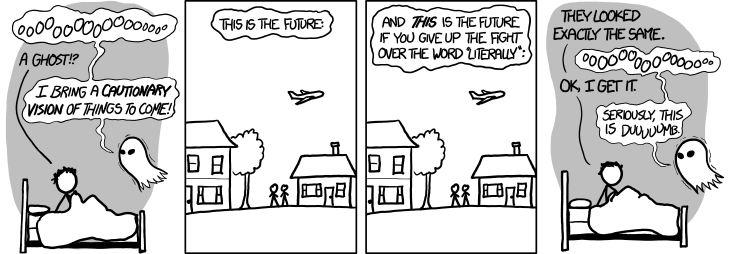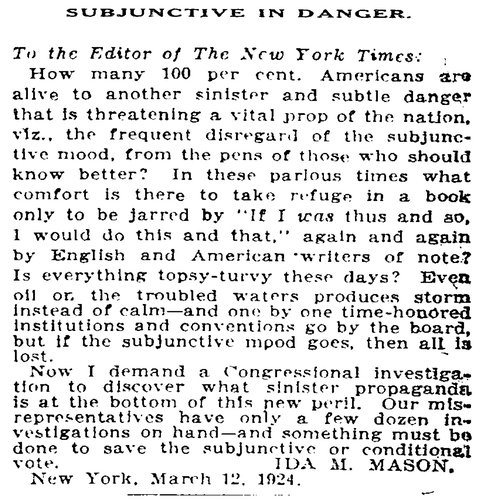Kory Stamper at harm·less drudg·ery responds to a correspondent who is sincerely troubled by the illogic of irregardless ("No Logic in 'Etymological': A Response I Actually Sent", 10/24/2012):
English is a little bit like a child. We love and nurture it into being, and once it gains gross motor skills, it starts going exactly where we don’t want it to go: it heads right for the goddamned light sockets. We put it in nice clothes and tell it to make friends, and it comes home covered in mud, with its underwear on its head and someone else’s socks on its feet. We ask it to clean up or to take out the garbage, and instead it hollers at us that we don’t run its life, man. Then it stomps off to its room to listen to The Smiths in the dark.
Everything we’ve done to and for English is for its own good, we tell it (angrily, as it slouches in its chair and writes “irregardless” all over itself in ballpoint pen). This is to help you grow into a language people will respect! Are you listening to me? Why aren’t you listening to me??
Like well-adjusted children eventually do, English lives its own life. We can tell it to clean itself up and act more like one of the Classical languages (I bet Latin doesn’t sneak German in through its bedroom window, does it?). We can threaten, cajole, wheedle, beg, yell, throw tantrums, and start learning French instead. But no matter what we do, we will never really be the boss of it. And that, frankly, is what makes it so beautiful.
Read the rest of this entry »

